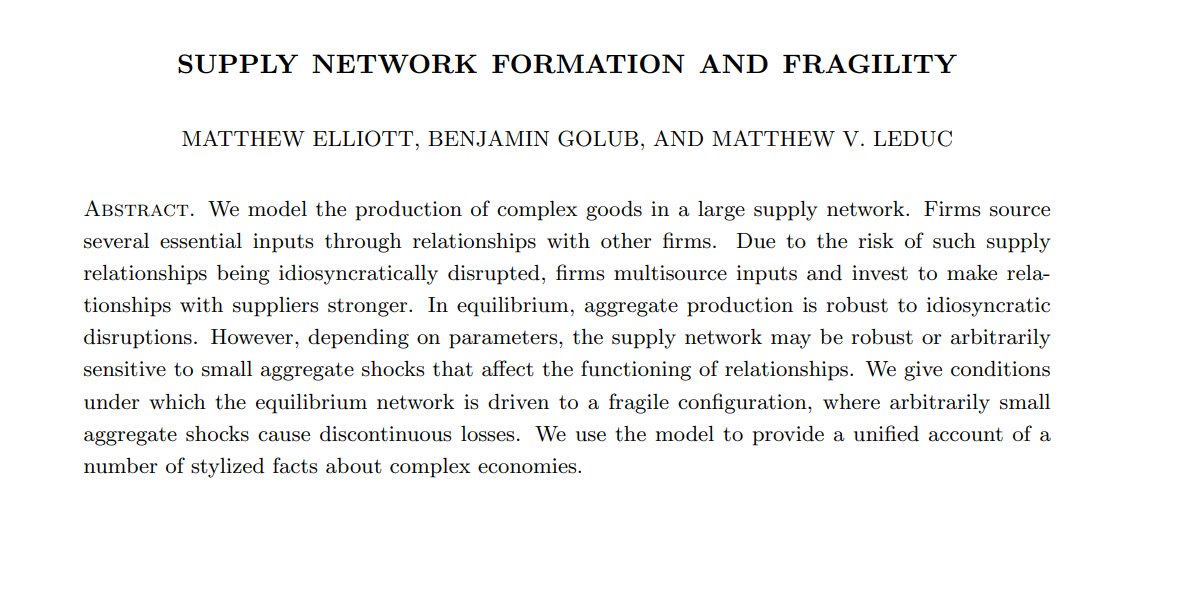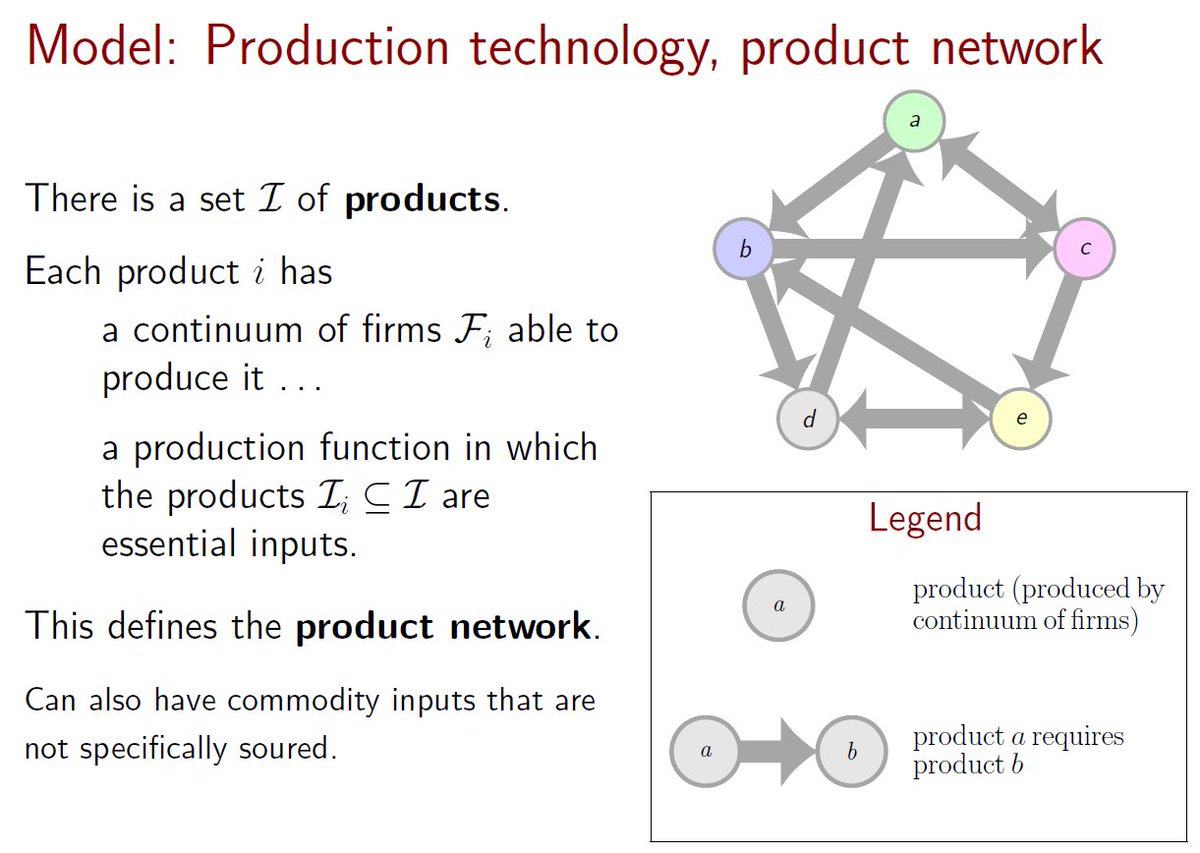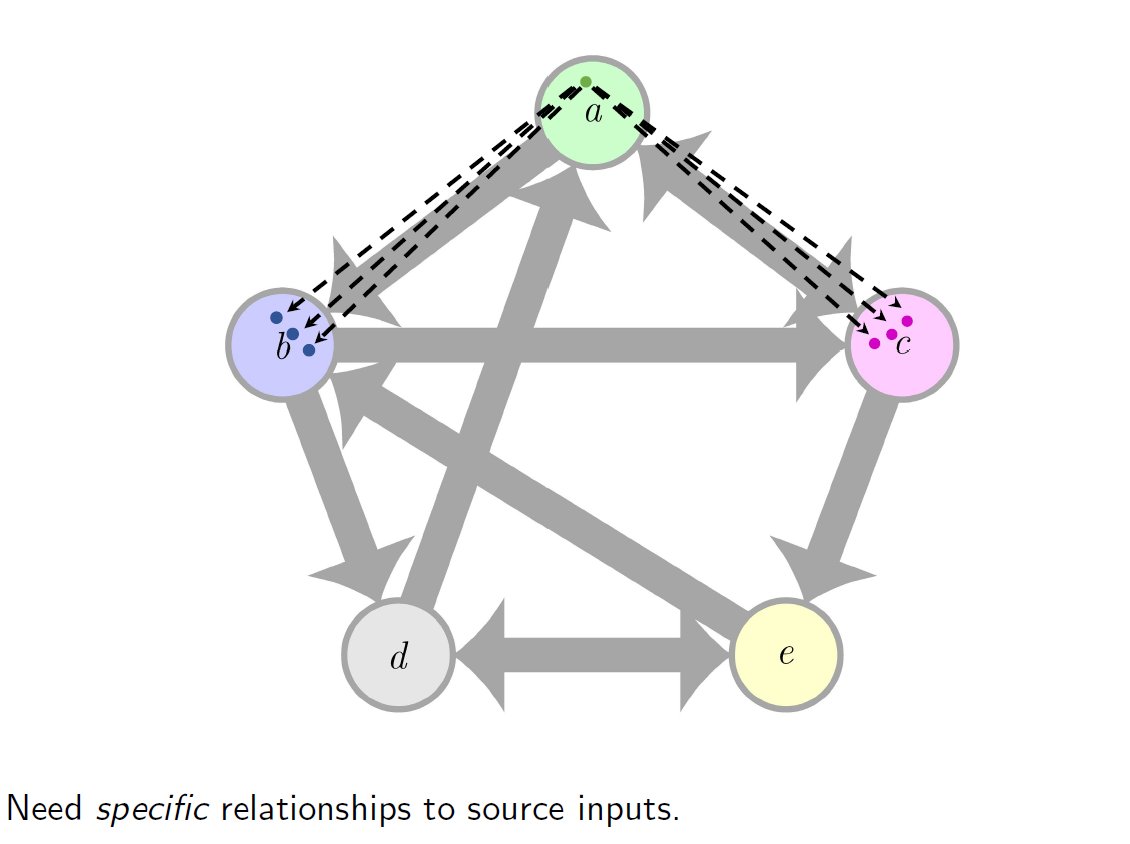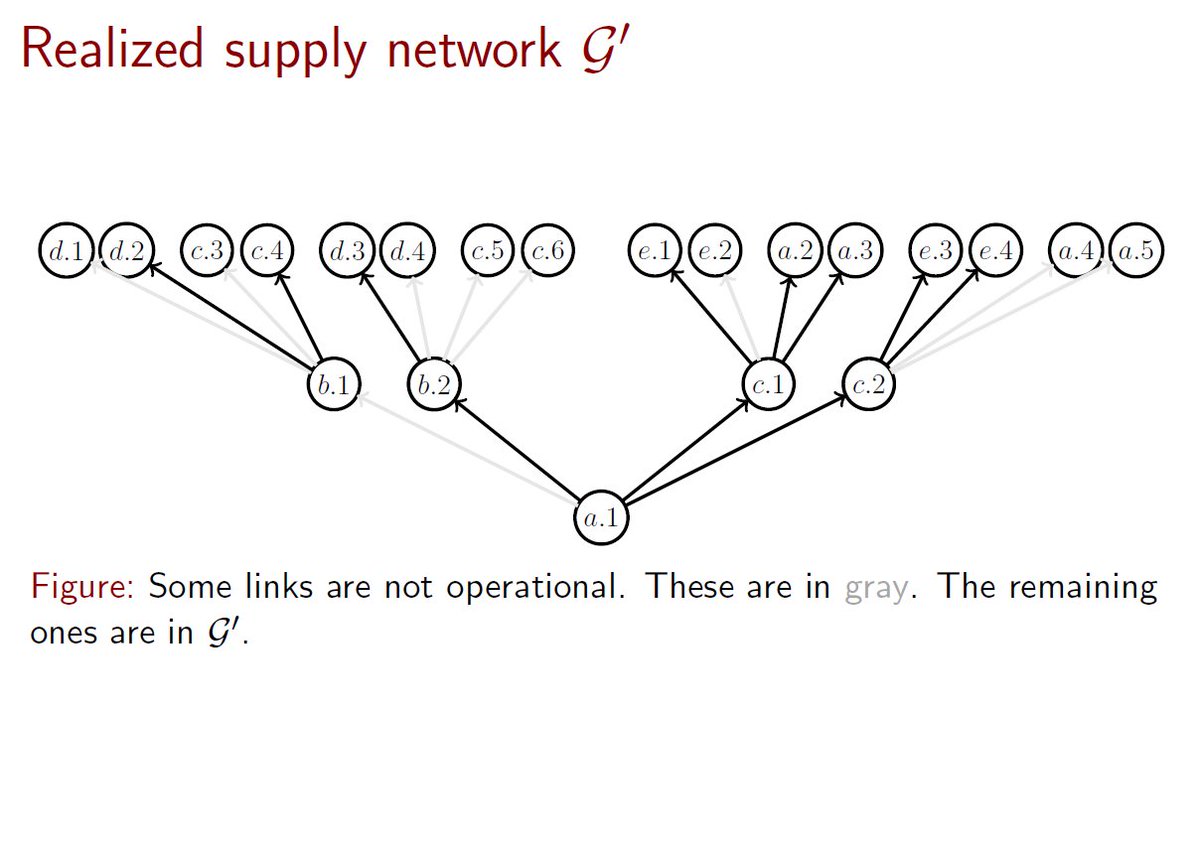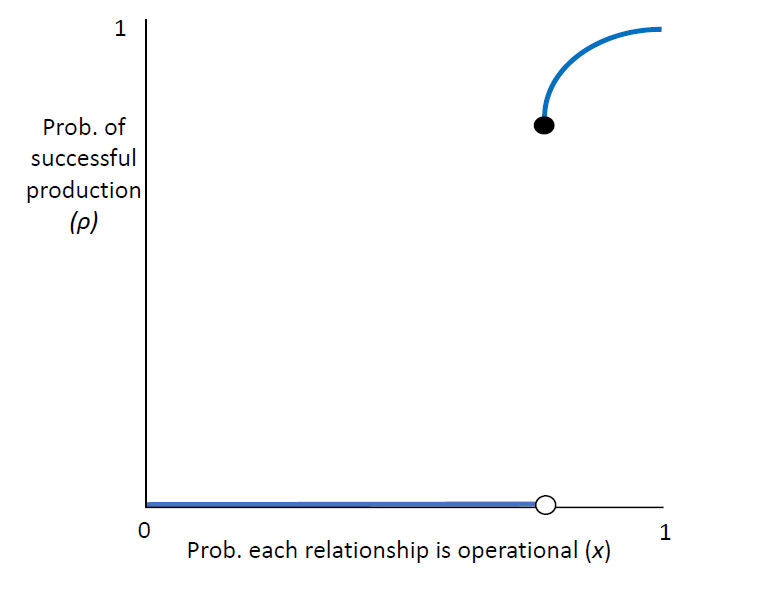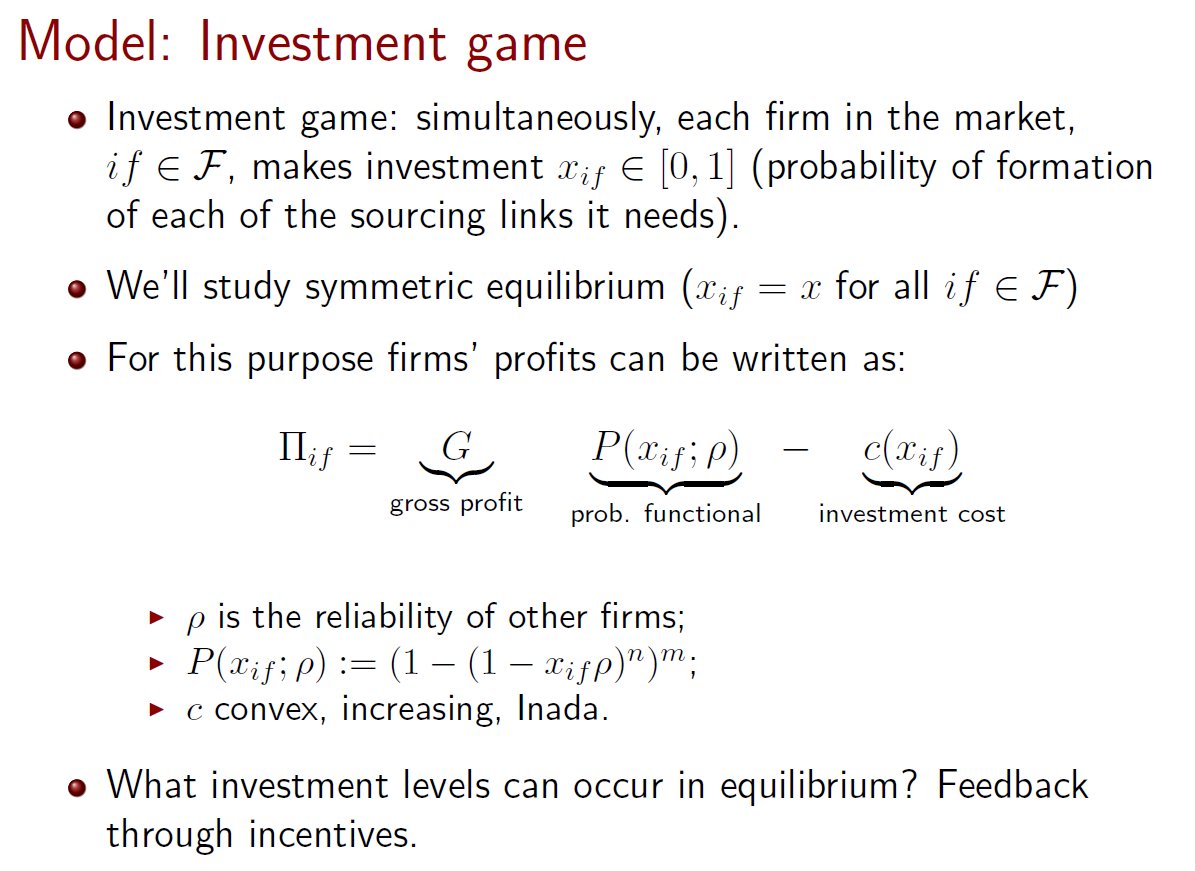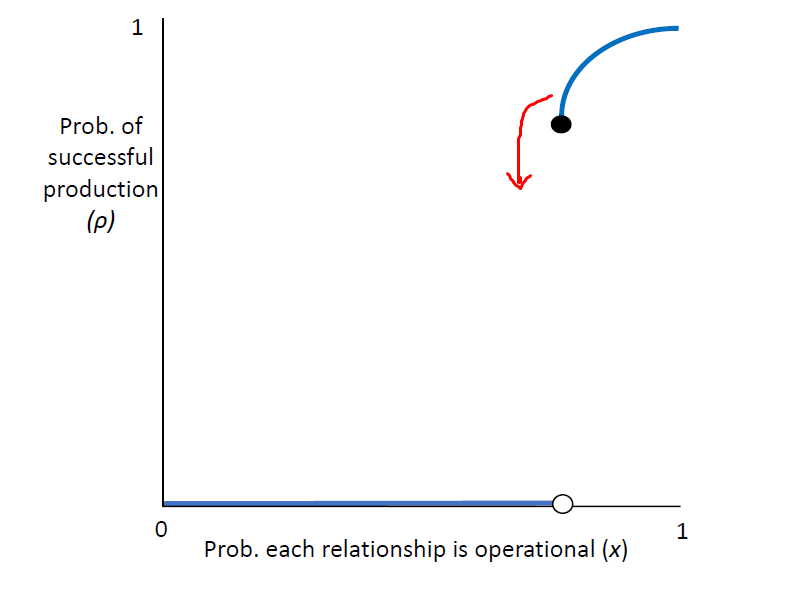Networks of business relationships are the tissue of a modern economy. The current crisis is a common shock to these relationships.
This new paper develops a network theory of why such shocks are devastating, especially for complex production.
http://bengolub.net/papers/SNFF.pdf ">https://bengolub.net/papers/SN...
This new paper develops a network theory of why such shocks are devastating, especially for complex production.
http://bengolub.net/papers/SNFF.pdf ">https://bengolub.net/papers/SN...
THREAD
The theory shows that supply networks are naturally drawn to operate near tipping points where they are fragile.
If many links experience a shock in their value -- even if that shock is small relative to total long-run value -- the damage can be grave.
2/N
The theory shows that supply networks are naturally drawn to operate near tipping points where they are fragile.
If many links experience a shock in their value -- even if that shock is small relative to total long-run value -- the damage can be grave.
2/N
Thus, *relational capital* is valuable and fragile, and can be particularly important to reinforce in a crisis.
These are the punchlines, and the rest of the thread is a quick sketch of what is actually going on in the model.
3/N
These are the punchlines, and the rest of the thread is a quick sketch of what is actually going on in the model.
3/N
Basic setup: there are many products, and a continuum of firms making each.
To make a given product, a firm must source SEVERAL other products as inputs. These may be physical inputs, professional services, etc.
It gets these inputs through relationships with other firms.
4/N
To make a given product, a firm must source SEVERAL other products as inputs. These may be physical inputs, professional services, etc.
It gets these inputs through relationships with other firms.
4/N
Each firm has a set of relationships -- POTENTIAL supply links -- that can provide the needed inputs. If none of them can deliver a needed input, then the firm cannot produce.
5/N
5/N
Each of these may operate successfully or not. Whether or not it does is random. Idiosyncratic disruptions occur with some probability -- e.g., workers are sick, or a firm lacks cash/credit to meet commitments. "Relationship strength" = prob. that any relationship works.
We are interested in the RELIABILITY = share of firms in the economy that CAN produce. There are stark discontinuities in this as we vary relationship strength.
Vertical axis -- reliability (given disruptions).
Horizontal axis -- strength of supply relationships.
7/N
Vertical axis -- reliability (given disruptions).
Horizontal axis -- strength of supply relationships.
7/N
Consider the impact of a common shock to relationship strength. What then happens to a given supply chain will depend on where it is located on the curve above: whether it is close to the discontinuity or far.
8/N
8/N
So where will supply chains be in the "cliff picture"?
It is socially efficient for them to be away from the precipice; the social returns to strength are HUGE there.
But businesses choose investments in the strength of their relationships based on individual incentives.
9/N
It is socially efficient for them to be away from the precipice; the social returns to strength are HUGE there.
But businesses choose investments in the strength of their relationships based on individual incentives.
9/N
We find that equilibrium investment choices push supply chains inefficiently toward the precipice.
Indeed, it& #39;s much more likely than you might think that a "generic" supply network tiptoes toward the cliff.
When a shock hits, many networks simultaneously collapse.
10/N
Indeed, it& #39;s much more likely than you might think that a "generic" supply network tiptoes toward the cliff.
When a shock hits, many networks simultaneously collapse.
10/N
To elucidate this force fully, we go a bit beyond the scope of this thread. (What I& #39;m not getting into here is an endogenous entry decision by firms: do they want to produce at all.)
But the takeaway is that
complex production + firms investing in relationships = FRAGILITY.
But the takeaway is that
complex production + firms investing in relationships = FRAGILITY.

 Read on Twitter
Read on Twitter